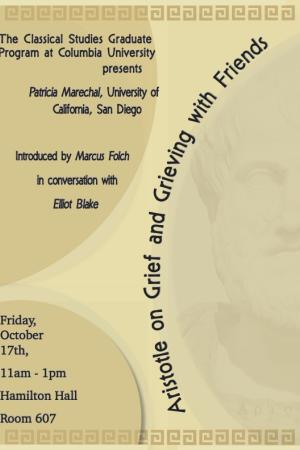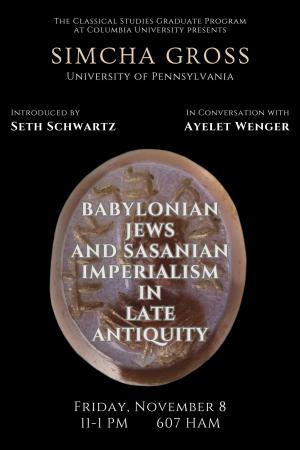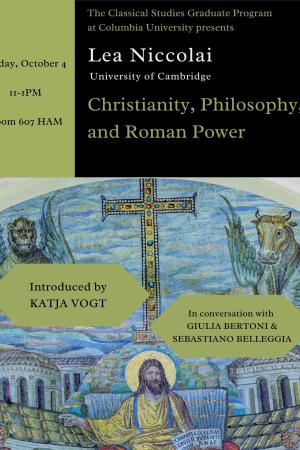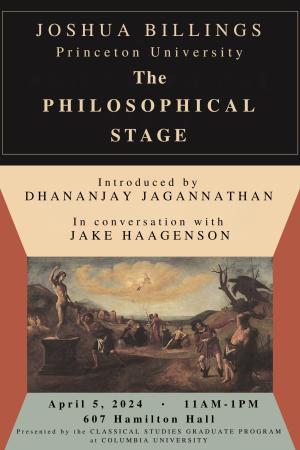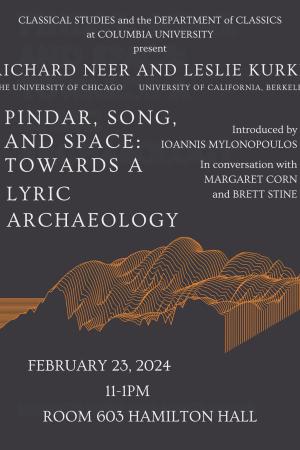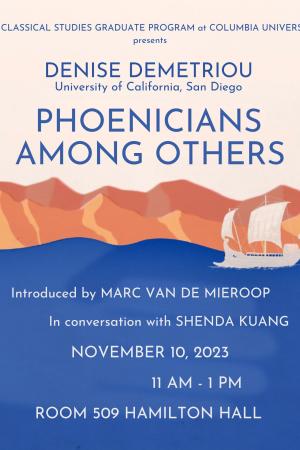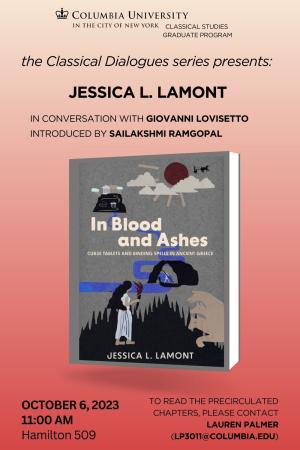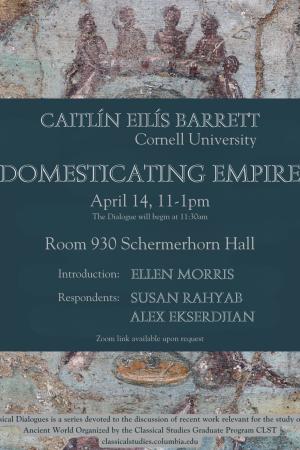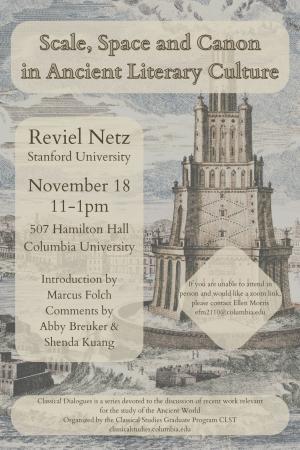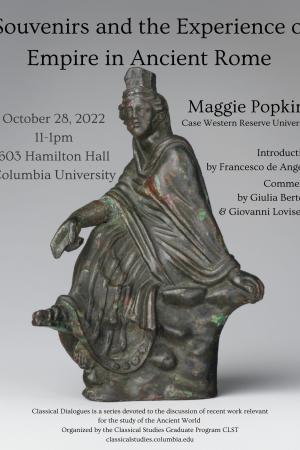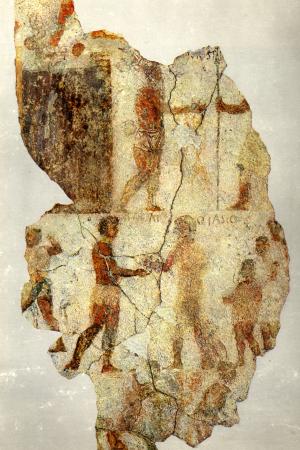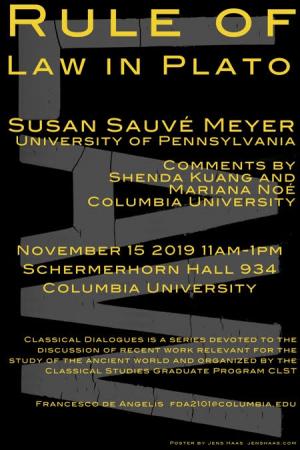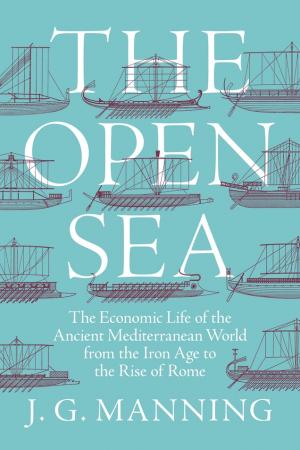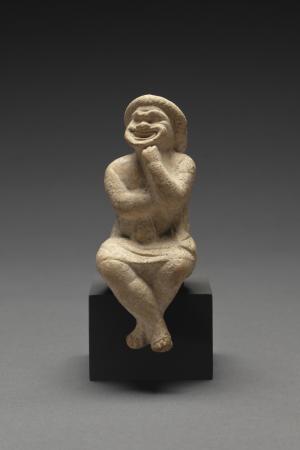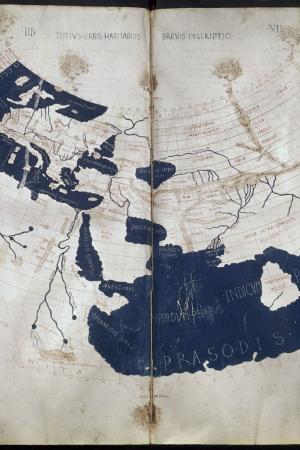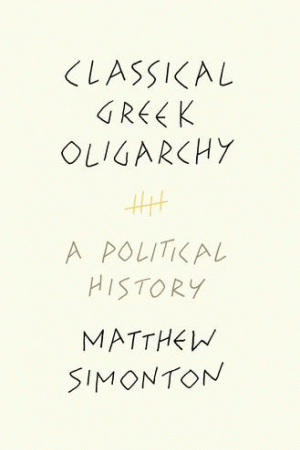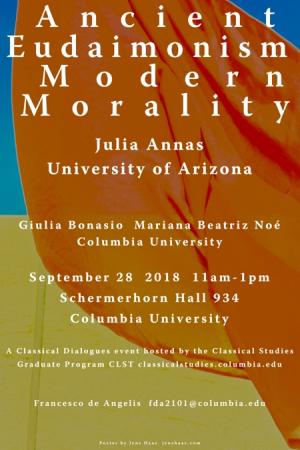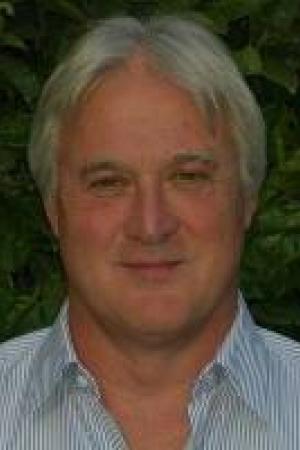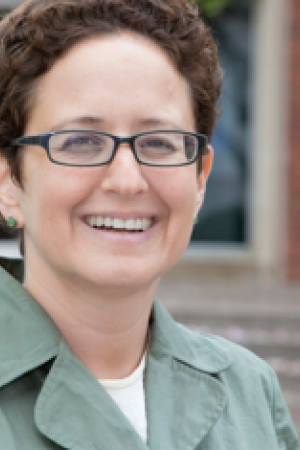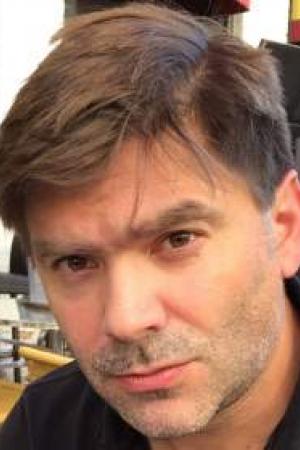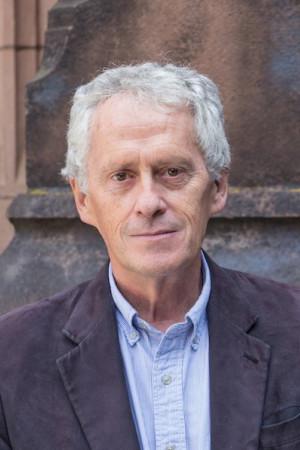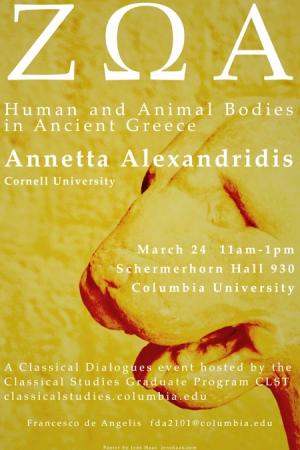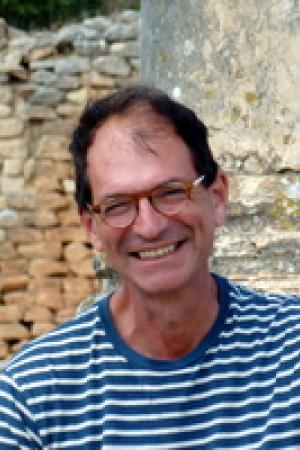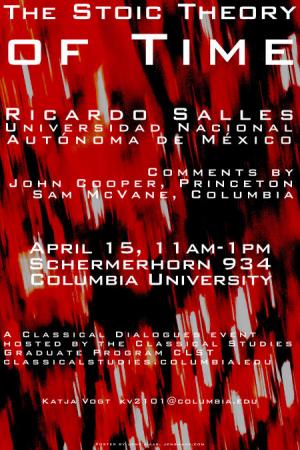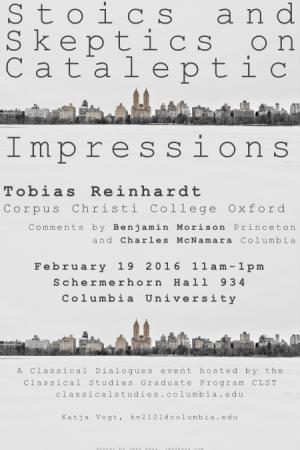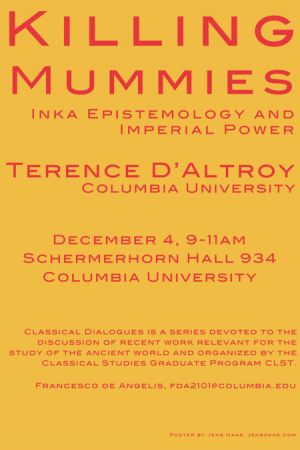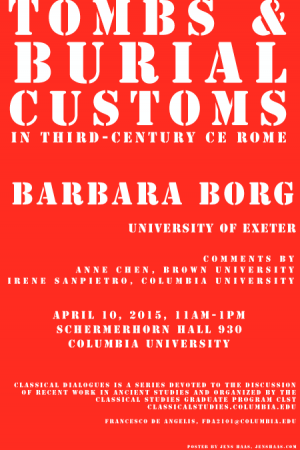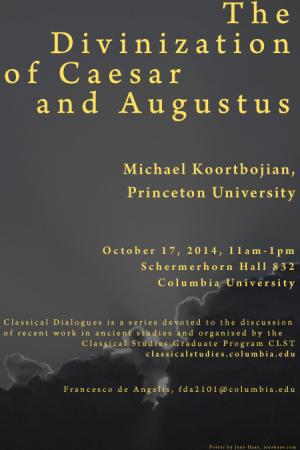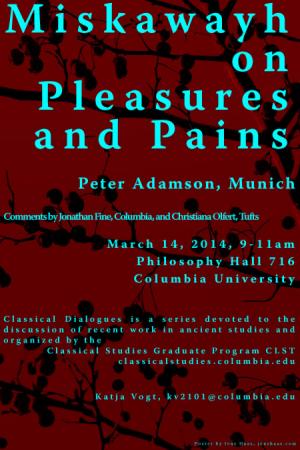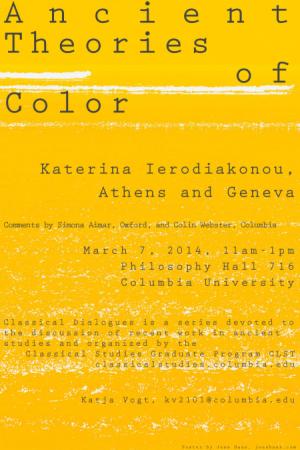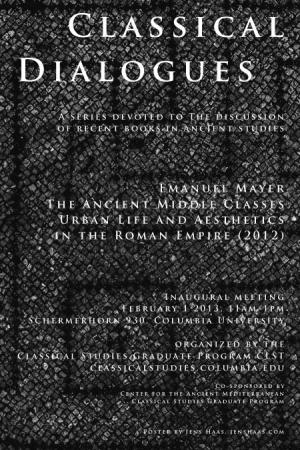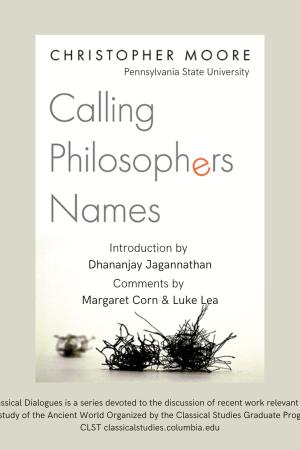 Calling Philosophers NamesChristopher Moore Pennsylvania State UniversityFebruary 3, 2023 - February 3, 2023
Calling Philosophers NamesChristopher Moore Pennsylvania State UniversityFebruary 3, 2023 - February 3, 2023
11:00am - 1:00pm -
Columbia University
As part of its Classical Dialogues series, the Classical Studies Graduate Program CLST at Columbia University is pleased to welcome Christopher Moore, Associate Professor of Philosophy and Classics at Penn State. On February 3, 11am-1pm, Christopher Moore will discuss his book Calling Philosophers Names: On the Origin of a Discipline (Princeton UP, 2019, an original and provocative book that illuminates the origins of philosophy in ancient Greece by revealing the surprising early meanings of the word "philosopher." Introduction by Dhananjay Jagannathan (Columbia University) with commentators Margaret Corn (Columbia University) and Luke Lea (Columbia University). Location: Room 832 Schermerhorn Hall, Columbia University.
Calling Philosophers Names provides a groundbreaking account of the origins of the term philosophos or “philosopher” in ancient Greece. Tracing the evolution of the word’s meaning over its first two centuries, Christopher Moore shows how it first referred to aspiring political sages and advice-givers, then to avid conversationalists about virtue, and finally to investigators who focused on the scope and conditions of those conversations. Questioning the familiar view that philosophers from the beginning “loved wisdom” or merely “cultivated their intellect,” Moore shows that they were instead mocked as laughably unrealistic for thinking that their incessant talking and study would earn them social status or political and moral authority.
Taking a new approach to the history of early Greek philosophy, Calling Philosophers Names seeks to understand who were called philosophoi or “philosophers” and why, and how the use of and reflections on the word contributed to the rise of a discipline. Drawing on a wide range of evidence, the book demonstrates that a word that began in part as a wry reference to a far-flung political bloc came, hardly a century later, to mean a life of determined self-improvement based on research, reflection, and deliberation. Early philosophy dedicated itself to justifying its own dubious-seeming enterprise. And this original impulse to seek legitimacy holds novel implications for understanding the history of the discipline and its influence.
In its Classical Dialogues series, the interdepartmental Classical Studies Graduate Program CLST at Columbia University invites authors of recent work in ancient studies that is exemplary for the kind of study that CLST aims to foster. All faculty and students at Columbia and beyond are cordially invited. CLST students are required to read carefully at least one chapter or article in advance and prepare questions and comments for discussion.
